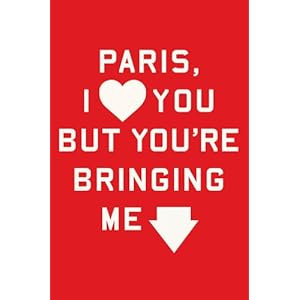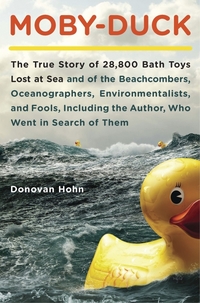 "It's really hard to sustain a note on a full stomach because I'm afraid I'll burp into the microphone," Sharon Van Etten said to a packed house of queer couples, single ladies in flannel button-ups, and groups of middle-aged hipsters at Neptune Theatre Sunday night.
"It's really hard to sustain a note on a full stomach because I'm afraid I'll burp into the microphone," Sharon Van Etten said to a packed house of queer couples, single ladies in flannel button-ups, and groups of middle-aged hipsters at Neptune Theatre Sunday night.Book Reviews, Author Interviews, Literary Trends, and the Latest in Queer Culture.
Tuesday, March 27, 2012
Powerfully Adorable: A Review of the Sharon Van Etten Concert
 "It's really hard to sustain a note on a full stomach because I'm afraid I'll burp into the microphone," Sharon Van Etten said to a packed house of queer couples, single ladies in flannel button-ups, and groups of middle-aged hipsters at Neptune Theatre Sunday night.
"It's really hard to sustain a note on a full stomach because I'm afraid I'll burp into the microphone," Sharon Van Etten said to a packed house of queer couples, single ladies in flannel button-ups, and groups of middle-aged hipsters at Neptune Theatre Sunday night.Tuesday, March 20, 2012
Book Review: Rosecrans Baldwin's "Paris, I Love You But You're Bringing Me Down"
 First off, I picked up this book and saw that the author's first name was Rosecrans. Therefore, the book couldn't possibly be bad, right? Well, I was partly correct.
First off, I picked up this book and saw that the author's first name was Rosecrans. Therefore, the book couldn't possibly be bad, right? Well, I was partly correct. Friday, March 16, 2012
The Q Review x2
OUR MISSION is to provide a platform for queer art and expression. We want to bring queer voices together as a collection of voices, as a deafening roar and unite LGBTQ artists under one title, one website, one letter: Q.
We chose “Q” because we aim to include everyone. “Q” literally stands for Queer, the all-inclusive identifier from the alphabet soup, LGBTQ. So whether you write poetry, or create graphic illustrations – gay, lesbian, or simply queer – your voice is welcome inside The Q Review.
We intend to bring the greater Chicago area and the rest of the world a formal, regular, and cohesive publication to spread queer thought, creativity, and to nourish the growth of the queer arts community as a whole.
Monday, March 12, 2012
Film Review: Paul Weitz's "Being Flynn"

Monday, March 5, 2012
Book Review: Donovan Hohn's "Moby Duck"

Writer Donovan Hohn uses Ernie’s Sesame Street “Rubber Duckie” tune in his latest, Moby Duck, to introduce a bizarre news event of 1992. In January, a shipment of toys was en route from Hong Kong to Tacoma, WA when the ship was caught in a storm. Much of the cargo – including 28,800 plastic animals (most notably, 7,200 rubber ducks) – fell overboard in the accident. The occurrence was never reported (due to liability). Then, starting in 2003, rubber ducks began showing up on the shores of Seattle, different beaches throughout California, Alaska, and, somehow, Maine. One way or another the ducks not only survived, but ended up on beaches all over the country, then later, the world.
Hohn was a high school English teacher when he first heard about the rubber duck phenomenon. While he had never before worked in the fields of science, oceanography, or environmentalism (nor knew anything about beachcombers), Hohn became obsessed with the string of events that led to the rubber duck spill, as well as the accident’s aftermath.
He writes in both a fiction and non-fiction manner. On the one hand, Hohn explains the trials and tribulations of one wide-eyed explorer of the unknown, “a near-sighted, school-teaching, would-be archaeologist of the ordinary,” but also examines the intricate details of oceanography, polyethylene (the most commonly used plastic), and other chemicals that have slowly been poisoning the earth’s water supply.
The style and subsequent editing of the book is puzzling, however. In some ways, Hohn transforms an incredibly dry subject (for some) into a thriller, a mystery, and an action-packed drama. But his sentence structure is a bit like Yoda from Star Wars:
“I also liked them because I have since childhood found natural history more enchanting than nature, whatever that was.”
The book itself is also unnecessarily long. Hohn’s discoveries are interesting, and the reader appreciates a quick explanation of the fancy science jargon, but the story feels like Hohn never decided whether to write a book about his life or a book about neat scientific things. There is too much of both.
The quirky one-liners are worth it, though, and Hohn’s story is, of course, extraordinary. Plus, aside from the bizarre sentence structure, the man can definitely write:
“Wildly out of scale and dyed a lurid, maraschino red, the beaver seems altogether out of place in this menagerie, a mammalian interloper from somebody’s acid trip.”
More than, anything, however, Hohn’s story feels real. On top of the many complications he faced on his journey, Hohn was on the brink of first-time parenthood when he began his research. His struggles with parenting, paired with his fear of sharks and complete submission to the unknown, makes his writing relatable, as well as memorable.
Moby Duck was published on February 28, 2012 by Penguin Books.
Photo credit: www.brainpickings.org